- Home
- Andrew Wareham
An Uncertain Peace (The Making of a Man Series, Book 3)
An Uncertain Peace (The Making of a Man Series, Book 3) Read online
Andrew Wareham
Book Three: The Making
of a Man Series
Digital edition published in 2016 by
The Electronic Book Company
A New York Times Best-seller
Listed Publisher
www.theelectronicbookcompany.com
www.facebook.com/quality.ebooks
This ebook is licensed for your personal enjoyment only. This ebook may not be re-sold or given away to other people. If you would like to share this ebook with another person, please purchase an additional copy for each recipient. If you’re reading this ebook and did not purchase it, or it was not purchased for your use only, then please purchase your own copy. Thank you for respecting the hard work of this author. This ebook contains detailed research material, combined with the author's own subjective opinions, which are open to debate. Any offence caused to persons either living or dead is purely unintentional. Factual references may include or present the author's own interpretation, based on research and study.
An Uncertain Peace
Copyright © 2016 by Andrew Wareham
All Rights Reserved
Contents:
Title Page
Copyright Page
Introduction
Chapter One
Chapter Two
Chapter Three
Chapter Four
Chapter Five
Chapter Six
Chapter Seven
Chapter Eight
Chapter Nine
Chapter Ten
By the Same Author
Introduction
An Uncertain Peace: After another run-in with the Fenians in Liverpool, Dick returns to Dorset to marry. He decides that a wedding journey to the States as the war draws to an end could also be used to tidy up his business dealings. However, not all guns fall silent and Dick faces dangers in Kansas. On his return to England, he is tasked with saving the Queen as a rabidly obsessed man with a claim to the throne threatens her security.
Best read in series order
Author’s Note: I have written and punctuated An Uncertain Peace in a style reflecting English usage in novels of the period, when typically, sentences were much longer than they are in modern English. Editor’s Note: Andrew’s book was written, produced and edited in the UK where some of the spellings and word usage vary slightly from U.S. English.
Book Three: The Making
of a Man Series
Chapter One
Major Sir Richard Burke heaved himself out of his seat in the first-class carriage at Euston Station. He was stiff and bruised. He ached. He looked at his travelling bag with disfavour, bent down like an old man and just managed to straighten his back again. He shuffled to the door to the compartment and eased himself down to the platform. A watchful porter spotted a tip and came trotting across, took the bag and collected his trunk from Plaistow at the baggage van.
“Where to, sir?”
“There should be a man waiting for me outside. I would expect to be recognised.”
They made their slow way outside of the immense and sombre station concourse – all red brick and glass but covered in soot, black and gloomy - stopped for a moment to look round.
A uniformed driver marched forward.
“Major Burke, sir? This way, if you would be so good.”
A shilling to the porter, very grateful – he had hoped for sixpence, would have accepted a penny – and Dick pulled himself up the single step and into the bench seat of the one-horse town carriage. He waited while Plaistow arranged himself on top, behind the driver – a valet could not possibly travel inside with the master. They pulled away, the driver asking no direction.
“Rather stiff, Sir Richard? It’s always worse on the second day.” Major Hewitt was happily unsympathetic; taking the occasional lambasting was part of the trade – one was not really a professional until after the first beating.
“And how does it feel on the third day?”
“Not a lot better, I am afraid, sir!”
“I take comfort that my assailants certainly feel no healthier!”
Hewitt coughed uncomfortably; he could not approve of corpses strewn about the streets of major cities – not in England, certainly.
“I do not believe you were expected to carry pocket pistols, Sir Richard. This is not America, after all.”
“It is fortunate that I was armed, I believe. I doubt I would ever have walked again if they had had their way. They swung those pick-axe handles with all their weight. I was only hit twice and still I am viciously bruised.”
“Probably, Sir Richard, they meant to put you in the Infirmary but not to cripple you for life. However, that is moot now, two of them in the care of the prison doctor and the third in the mortuary with two bullets in his heart.”
Dick raised a hand in protest.
“The police dealt with one – they were not all mine. Two constables with those lignum vitae truncheons of theirs came at him from behind. One hit him on the arm, broke it clean – because he was swinging his own club at the time, I suspect, adding his own weight to the blow. The second rapped him across the lower back as he stumbled – he’ll be pissing blood for a week after that! For the other pair, a Derringer in each hand, and in the nature of things I am a better shot right-handed than left. The one I hit fair and square, both rounds centrally in the chest; the other was thigh and belly, I believe. Really, you know, Major Hewitt, it was damned good shooting in the circumstances!”
Major Hewitt suggested that he had not intended to criticise Dick’s accuracy, more to comment that people did tend to complain when the streets were littered with screaming Irishmen.
“And it was a busy street, Sir Richard – not at all discreet!”
Dick apologised – he would try to be tidier in future.
“Still, we have blamed everything on an internal dispute within the Fenians, and the newspapers have accepted that without question. The Confederate agent, Bulloch, is to stay free, to keep things tidy; was we to arrest and deport him then there would be those who made a connection between him and you. It does not matter – he has ended his efforts to commission ships of war and is concentrating on another commerce raider instead; we have no concerns about that, as you know.”
“So all is tidy in Liverpool, you would suggest, Major Hewitt?”
“Within reason, yes. Your shipbuilders will be looked after by the navy and will be encouraged to build for Turkey and South America – there will be profits there and no harm to British interests. It will annoy the Yankees as well if the British monopolise the South American markets. We are to build the great bulk of railway lines there and it makes good sense to have a degree of influence in their harbours. If we construct their steam ironclads, then we can also contract for their coaling stations and repair yards; British colliers can supply their steam coal as well.”
“That could make another investment, perhaps – a line of ocean-going colliers might offer substantial profits… How much longer will this damned Civil War last, do you think, Major Hewitt?”
“Not my field, Sir Richard. Lord Robert Kuyper says he gives it another year before the Federals win. They are taking to Russian policies at last – ‘scorched earth’, they call it. The destruction of every farm; every railway; every warehouse and store. Plantation houses to be burned and the families turfed out on the road; where possible, the rich of the South to be hurt most. It has always been known as a ‘Rich Man’s War and a Poor Man’s Fight’ in the Confederacy; the private soldiers doing the bulk of the dying and owning not a slave between them, the plantation owners sitting in Richm
ond and Atlanta and telling them what heroes they are. The North is changing that – it is actually causing hurt to the rich few now. Enthusiasm for States’ Rights and the Institution of Slavery is waning fast, one understands.”
Dick was rather pleased to hear that; the Southerners thought themselves to be aristocrats and the world would be a far better place with fewer of those in it.
“It would be appreciated if you would remain in London for a few days, Sir Richard. Three or four is all, while you made a brief report to certain members of the government who wish to be told more of Fortescue and of the two dead of Kansas City.”
“Tarleton and Fellowes? A pair of fools, is all Major Hewitt, but I am happy enough to answer questions. Fortescue – just another traitor, sir, a man who was willing to betray his country from spite. Has he been sent out to the colonies, as was suggested?”
Hewitt shook his head, disapproving. There had been police action, against a member of the upper-classes; however flagrant the case, it was a bad precedent to set. It would have been more desirable to have quietly garrotted the fellow rather than let policemen loose on their betters.
“Government was displeased with him, Sir Richard, and chose to make an example of him! There has been more than one recent case of highly-placed young men who have sold or given information to foreign powers and have then looked to be protected by their name and family when unexpectedly detected. Mr Fortescue was taken before the High Court of Justice, the case heard out of London and without reporting – in Exeter, I believe, miles deep in the sticks – and he was found guilty of treason; he was sentenced to death, as was mandatory. One understands he collapsed in weeping horror when he saw the black cap; he was reprieved, inevitably. The sentence was commuted to seven years at hard labour and he is now swinging a sledge-hammer in the quarry at Dartmoor.”
That was far more severe than Dick had expected, but he could not see it as undeserved. It was in any case of little importance to him, he believed.
“I presume that although the prosecution was not reported it was nonetheless common knowledge in Mayfair?”
Hewitt raised a supercilious eyebrow – what did he expect?
“It was known in every distasteful detail within the day. His family has withdrawn from Society, of course. Sold their Town House and retreated to the estates, never to be seen again. The eldest girl was to be wed later this year; she has released her fiancé from his obligations, much to his relief. The heir had been to take up a career in politics, but he has withdrawn from the seat for which he had been nominated. There is a third boy, and he has been taken out of Rugby School and will not study at Oxford, as had been intended. The two other daughters are still young, in the schoolroom, and are less immediately affected.”
Hewitt steepled his hands, delayed his next words to give them portentous effect.
“The Fortescue family is still wealthy, of course, but they are broken. The whole of Society is aware of their fall, and generally has little sympathy. The few who feel them to be hardly done-by dare not say so. The Tarletons and Fellowes are known to be in some way tarred with the Fortescues’ brush – but they are laying low and there will be little in the way of loss to them while they behave themselves with a degree of circumspection. They will take some pains to come into contact with you and will be seen to have no animus against you – they have indeed been heard to suggest that you should be rewarded with the Bath for your services to the Crown. It is therefore in your particular interest to be visible for these few days, in which you will be seen in the company of a few exalted persons, who will include the American Ambassador!”
“I am at your command, of course, Major Hewitt. I will please my valet by allowing him to lead me to a tailor of his choice, I think. For the while, I must find a hotel.”
“Done, Sir Richard, at the expense of the Department, of course. Your man is awaiting you in your suite. While I think of it, you will not be awarded the Bath, Sir Richard, but you will almost certainly be invited to shake the hand of the Prime Minister – which is very nearly as great an honour, or so he believes. Lord Palmerston has many virtues, but modesty is not preeminent among them. One understands, if you will forgive the intrusion into your private affairs, that you are soon to be wed, sir.”
“I hope to set the date on my return to Dorset, Major Hewitt. The third daughter of Mr Sudbury, who was, I believe, not unknown as a barrister-at-law.”
“The name is known, certainly, Sir Richard. Came into the inheritance and left the law, I recall.”
“He did – a pity in some ways that the habits of the law did not leave him!”
Hewitt grinned, sympathetically.
“My father’s younger brother became a judge – and a more pompous and foolish little man I never did meet! Returning to the wedding, Sir Richard – invitations to the Lord Lieutenant will be welcomed and no doubt one or two other noble families will intimate their desire to be present – to, one presumes, the delight of your lady’s father!”
“That will be much appreciated, sir. It should do me no end of good!”
Plaistow did not in fact think that a visit to a tailor was in any way appropriate while Sir Richard could not stand upright.
“One can hardly take your measurements this month, sir.”
“Then we may have to do so later in the year, Plaistow, because I am likely to visit London a little more often than I had expected.”
“Very good, sir. For the while the clothing purchased in Liverpool will suffice, because it will be impossible to ascertain how well cut it might be while you are slumping in a fashion more often to be seen among the monkeys at Regent’s Park Zoo than in Mayfair!”
“Thank you, Plaistow. I hired you, as I remember, to be a valet, not to be a sycophant; you are performing the functions well – both of them.”
“Thank you, sir.”
“We are to stay probably for four days and must then go to Burkes and there remain for a space of time. I do not know how long, so I expect it will be as well to arrange the wedding for an early day. I am to meet the American Ambassador, Mr Adams, and surmise that may involve an invitation to return to perform a particular service for the President. You will appreciate that there are a few actions that may be better taken by a foreigner than by an American citizen.”
Plaistow had not the slightest idea what he might be suggesting, but he much wanted to see America.
“I presume I am to accompany you, sir?”
“If you wish. I will not order you to do so, but will be glad if you will come.”
“It will be my pleasure, sir.”
“Very good! We must seek out a gunsmith in the morning and purchase a pair of revolvers for you.”
Dick found himself the companion of Lord Robert Kuyper for the week, starting the next evening, joining him at a dinner hosted by one of the Livery Companies, a formal affair with Cabinet Ministers present as well as the Lord Mayor and many of the elite of the City and of the aristocracy. It was one of those functions that permitted Commerce and Blue Blood to rub shoulders, which, despite the prejudices of both sides, was essential if the country was to be governed in any way efficiently. A few of the Diplomatic Corps were also present; the thrust of British foreign policy could be observed by discovering who was invited, who chose to come and who were rigorously excluded.
“Prussia, France and Belgium are present. The United States here, but none of the South Americans. Only good manners, of course, not to put the Latins in with the Yankees – they do tend to rub each other up the wrong way! Noteworthy in the extreme that Russia and Austria are not to be seen.”
“I am not sure that I understand European affairs at the moment, Lord Robert.”
“In that, you are in company with virtually every other man on Earth, Sir Richard. The whole of Europe is building up to a great explosion, but who and how is unclear. Prussia is endeavouring to create a German nation, by the sword. Many of the southern states of Germany are apparently already subservient; t
he north is to be further united soon – probably by another war. The Schleswig-Holstein business will send them to war yet again – because it is impossible of peaceful solution and the Austrians now involved and are as intransigent as the Prussians. The case should go to international arbitration, but no set of neutral judges could ever find a solution in law, because the issue is too obscure to be understood. War is probably as just an answer as any. That said, the Austrians must be put in their place, and I believe the new Prussia is capable of slapping their empire down. After that – who knows? France or England would be the most logical of targets, but Russia might be equally be a temptation – millions of acres of wheat land in the hands of barbarian primitives. Russia, separately, wishes to crush the Ottoman Empire and push to the Mediterranean Sea, and quite possibly the Indian Ocean as well. France wishes to be great, and will seek any opportunity to expand, irrespective of any long-term policy; Napoleon the Third wishes to pursue la gloire but has no idea what he will do if he catches it.”
“After that explanation I do not think I understand a lot more of the European problem, Lord Robert.”
“Nor me, sir!”
Dinner was a protracted affair, more than two hours of eating indifferently cooked traditional British dishes accompanied by a number of wines selected by a beer-drinking palate.
“That might be the worst meal I have eaten since leaving school, Lord Robert.”
“I would advise you to reconcile yourself, Sir Richard; it was better than most dinners served up in Mayfair!”
After the speeches - long, tedious, platitudinous monuments to the natural inadequacy of the politician – the company rose and circulated; this was for most of those present the sole value of the evening. It was possible to meet people casually, unobserved to an extent, certainly by apparent accident.

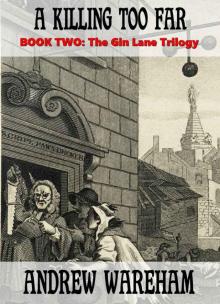 A Killing Too Far
A Killing Too Far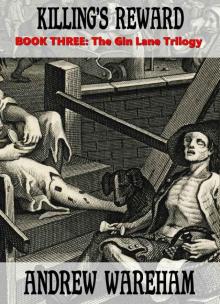 Killing's Reward
Killing's Reward A New Place
A New Place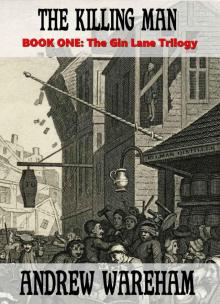 The Killing Man
The Killing Man Bold and Blooded
Bold and Blooded The Breaking Storm (Innocent No More Series, Book 2)
The Breaking Storm (Innocent No More Series, Book 2) Nobody’s Child
Nobody’s Child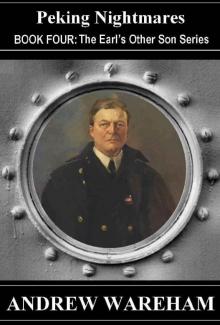 04 Peking Nightmares (The Earl’s Other Son Series, #4)
04 Peking Nightmares (The Earl’s Other Son Series, #4)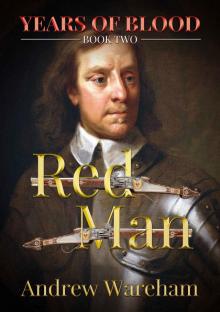 Red Man
Red Man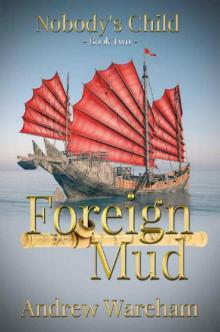 Foreign Mud
Foreign Mud The Gathering Clouds (Innocent No More Series, Book 1)
The Gathering Clouds (Innocent No More Series, Book 1)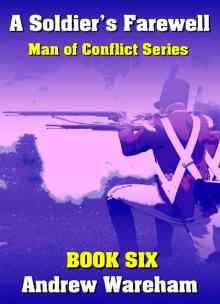 06 A Soldier’s Farewell (Man of Conflict #6)
06 A Soldier’s Farewell (Man of Conflict #6)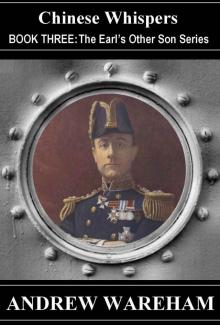 Chinese Whispers
Chinese Whispers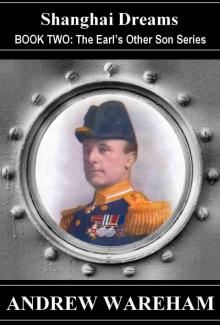 02 Shanghai Dreams (The Earl’s Other Son #2)
02 Shanghai Dreams (The Earl’s Other Son #2)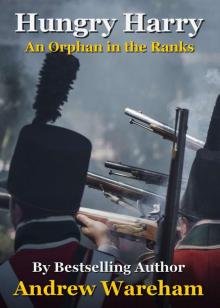 Hungry Harry: An Orphan in the Ranks
Hungry Harry: An Orphan in the Ranks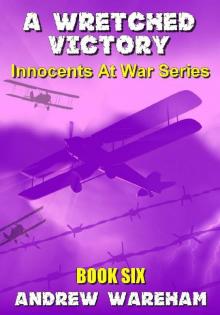 A Wretched Victory (Innocents At War Series, Book 6)
A Wretched Victory (Innocents At War Series, Book 6)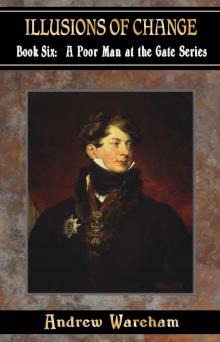 Illusions Of Change (A Poor Man at the Gate Series Book 6)
Illusions Of Change (A Poor Man at the Gate Series Book 6)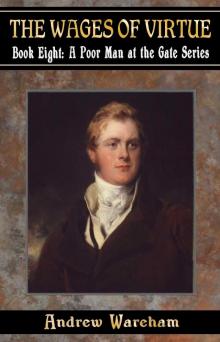 The Wages Of Virtue (A Poor Man at the Gate Series, Book 8)
The Wages Of Virtue (A Poor Man at the Gate Series, Book 8) Blood and Famine (Man of Conflict Series, Book 4)
Blood and Famine (Man of Conflict Series, Book 4)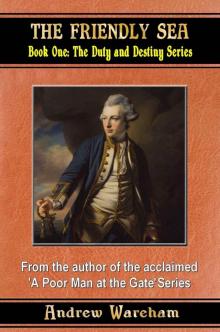 The Friendly Sea (The Duty and Destiny Series, Book 1)
The Friendly Sea (The Duty and Destiny Series, Book 1)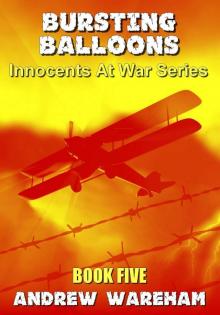 Bursting Balloons (Innocents At War Series, Book 5)
Bursting Balloons (Innocents At War Series, Book 5)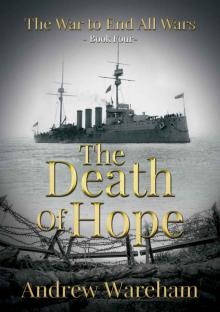 The Death of Hope
The Death of Hope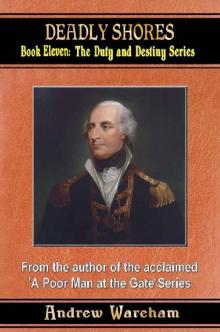 Deadly Shores (The Duty and Destiny Series, Book 11)
Deadly Shores (The Duty and Destiny Series, Book 11)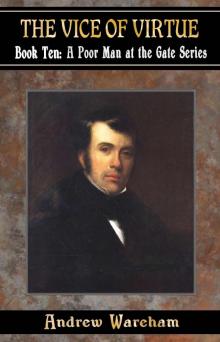 The Vice Of Virtue (A Poor Man At The Gate Series Book 10)
The Vice Of Virtue (A Poor Man At The Gate Series Book 10)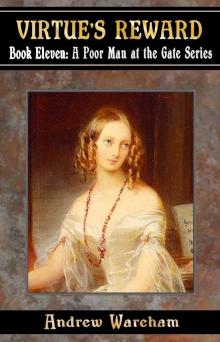 Virtue’s Reward (A Poor Man at the Gate Series, Book 11)
Virtue’s Reward (A Poor Man at the Gate Series, Book 11)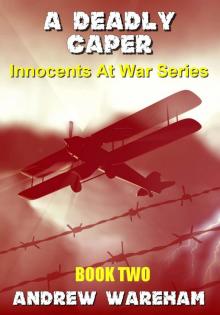 A Deadly Caper (Innocents At War Series, Book 2)
A Deadly Caper (Innocents At War Series, Book 2)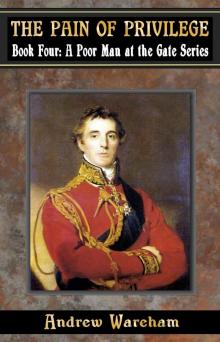 The Pain Of Privilege (A Poor Man at the Gate Series Book 4)
The Pain Of Privilege (A Poor Man at the Gate Series Book 4)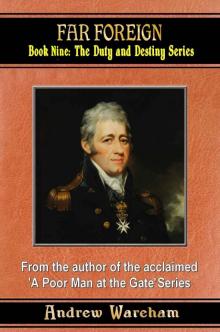 Far Foreign (The Duty and Destiny Series, Book 9)
Far Foreign (The Duty and Destiny Series, Book 9)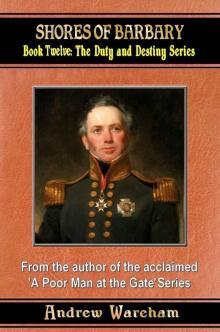 Shores of Barbary (The Duty and Destiny Series, Book 12)
Shores of Barbary (The Duty and Destiny Series, Book 12)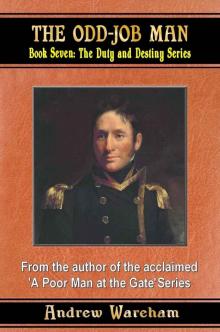 The Odd-Job Man (The Duty and Destiny Series, Book 7)
The Odd-Job Man (The Duty and Destiny Series, Book 7) Fire and Folly (Man of Conflict Series Book 3)
Fire and Folly (Man of Conflict Series Book 3)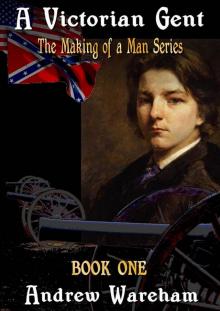 A Victorian Gent (The Making of a Man Series, Book 1)
A Victorian Gent (The Making of a Man Series, Book 1)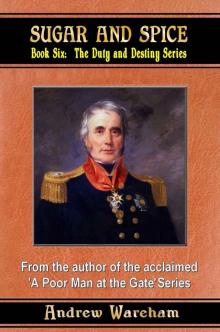 Sugar and Spice (The Duty and Destiny Series, Book 6)
Sugar and Spice (The Duty and Destiny Series, Book 6)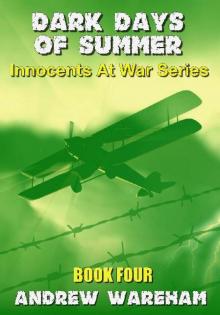 Dark Days Of Summer (Innocents At War Series, Book 4)
Dark Days Of Summer (Innocents At War Series, Book 4)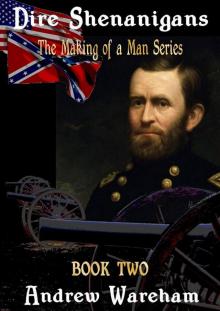 Dire Shenanigans (The Making of a Man Series, Book 2)
Dire Shenanigans (The Making of a Man Series, Book 2)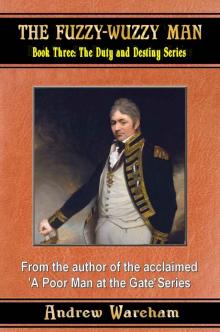 The Fuzzy-Wuzzy Man (The Duty and Destiny Series, Book 3)
The Fuzzy-Wuzzy Man (The Duty and Destiny Series, Book 3)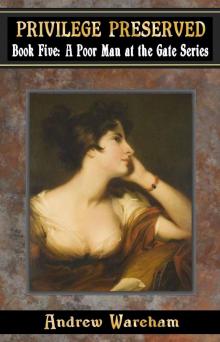 Privilege Preserved (A Poor Man at the Gate Series Book 5)
Privilege Preserved (A Poor Man at the Gate Series Book 5)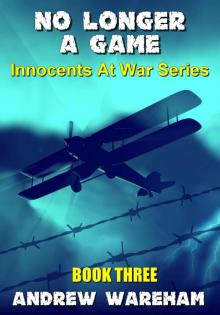 No Longer A Game (Innocents At War Series, Book 3)
No Longer A Game (Innocents At War Series, Book 3)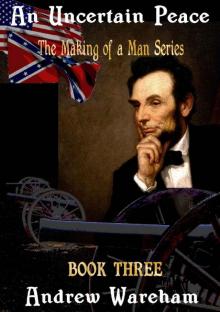 An Uncertain Peace (The Making of a Man Series, Book 3)
An Uncertain Peace (The Making of a Man Series, Book 3)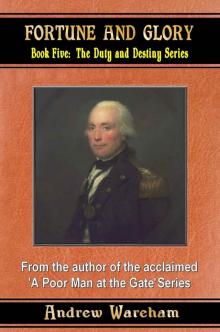 Fortune And Glory (The Duty and Destiny Series, Book 5)
Fortune And Glory (The Duty and Destiny Series, Book 5)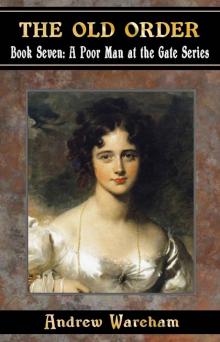 The Old Order (A Poor Man at the Gate Series Book 7)
The Old Order (A Poor Man at the Gate Series Book 7) A Place Called Home (Cannibal Country Trilogy, Book 2)
A Place Called Home (Cannibal Country Trilogy, Book 2) Nouveau Riche (A Poor Man at the Gate Series, Book 2)
Nouveau Riche (A Poor Man at the Gate Series, Book 2)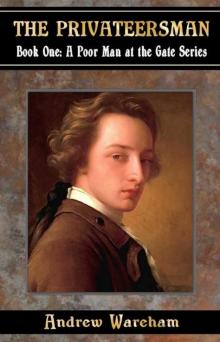 The Privateersman (A Poor Man at the Gate Series Book 1)
The Privateersman (A Poor Man at the Gate Series Book 1)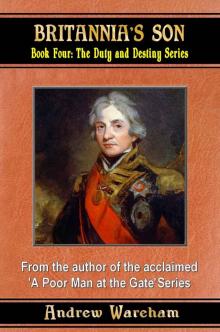 Britannia’s Son (The Duty and Destiny Series, Book 4)
Britannia’s Son (The Duty and Destiny Series, Book 4) Long Way Place (Cannibal Country Trilogy, Book 1)
Long Way Place (Cannibal Country Trilogy, Book 1)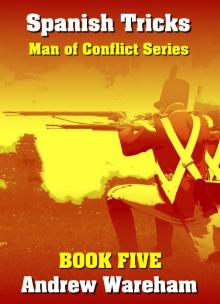 Spanish Tricks (Man of Conflict Series, Book 5)
Spanish Tricks (Man of Conflict Series, Book 5) A Parade Of Virtue (A Poor Man At The Gate Series Book 9)
A Parade Of Virtue (A Poor Man At The Gate Series Book 9)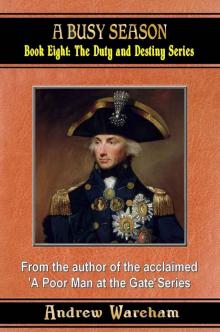 A Busy Season (The Duty and Destiny Series, Book 8)
A Busy Season (The Duty and Destiny Series, Book 8)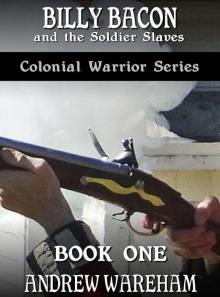 Billy Bacon and the Soldier Slaves (Colonial Warrior Series, Book 1)
Billy Bacon and the Soldier Slaves (Colonial Warrior Series, Book 1) Raging Rajahs (Man of Conflict Series, Book 2)
Raging Rajahs (Man of Conflict Series, Book 2)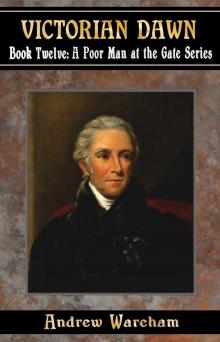 Victorian Dawn (A Poor Man at the Gate Series, Book 12)
Victorian Dawn (A Poor Man at the Gate Series, Book 12)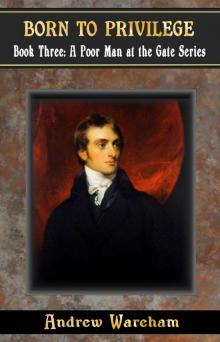 Born To Privilege (A Poor Man at the Gate Series Book 3)
Born To Privilege (A Poor Man at the Gate Series Book 3)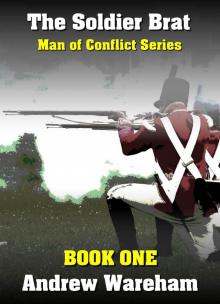 The Soldier Brat (Man of Conflict Series, Book 1)
The Soldier Brat (Man of Conflict Series, Book 1)